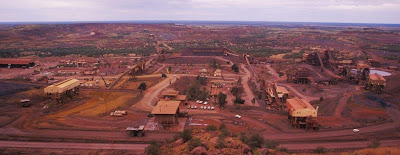
PERTH, Western Australia
Parlimentary elections are in their final week here in WA, and they are getting wild and wooly. The current Premier (state governor) has been running a Chicago-style machine apparatus for the last 2 years, since he was handed the job when his predecessor resigned do to "depression". Now not only are the parties fighting dirty against each other for votes, but the ministers within the Premier's party (Labor) are already fighting for survival in the new (assuming they win) Government.
FYI: Labor is the equivalent of the US Democrats. The equivalent of the US Republicans is called--get this--the Liberals. This refers to liberal economic policy, not social policy. So, Labor is liberal and the Liberals aren't. Typical Aussie contrary thinking.
Other parties are the Greens (environmental and social left-wing), Family First (religious right), the Nationals (rural and country), and the Democrats (who's motto is "we keep the bastards honest"). The Nationals and the Liberals form a Coalition to counter Labor's majority.
FYI: Labor is the equivalent of the US Democrats. The equivalent of the US Republicans is called--get this--the Liberals. This refers to liberal economic policy, not social policy. So, Labor is liberal and the Liberals aren't. Typical Aussie contrary thinking.
Other parties are the Greens (environmental and social left-wing), Family First (religious right), the Nationals (rural and country), and the Democrats (who's motto is "we keep the bastards honest"). The Nationals and the Liberals form a Coalition to counter Labor's majority.
 Newman Iron Mine Mill
Newman Iron Mine Mill
Issues in the election: banning uranium mining, not allowing genetically modified crops, managing the mining and energy boom economic windfalls, prohibiting new drivers to operate cars with V8 engines, corruption and lobbyest influence, managing development of the Perth metro area.
The election is Sept 6. More on the unique way votes are counted in the next blog.







